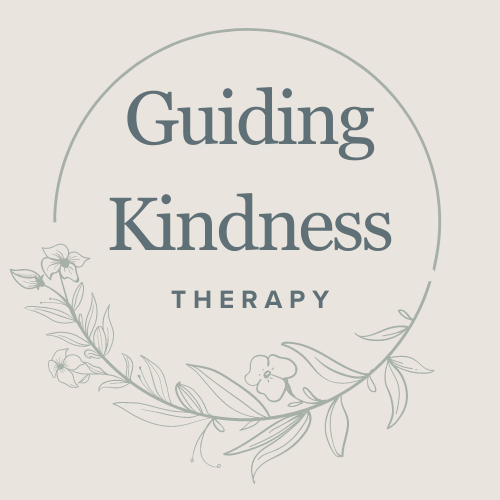Depressed Person’s Survival Guide
I thought a lot about what I wanted to say in honor of Mental Health Awareness Month, and the main message I hope my readers can take away from today is that you are not alone. Often when I tell my clients that I’ve been on the couch, sitting across from a therapist telling them all of my dirty details they’re in shock. I’ve had kids ask me “If you’re a therapist then why do you need one?” I often tell them that I too am on my own mental health journey and it began very early on in my life.
Today I want to share a part of my mental health journey in hopes that others can understand that we’re all imperfect creatures navigating the stressful path that we call life. These feelings, these behaviors you're experiencing can be worked on and helped.
I first realized something wasn’t right (excluding my debilitating anxiety ie. See previous blog) when I was eight years old and found out my father was an alcoholic. The knowledge that something was amiss in my family nearly killed me, and then I found out one year later that my parents were getting divorced. No, thank you. My parents didn’t think that I needed counseling at the time (little did they know I was internally screaming). I powered on, feeling isolated and alone not understanding that what was occurring was a symptom of a bigger issue, depression. In honor of Mental Health Awareness Month, I wanted to share some of the valuable tools that I have developed as a fellow human who struggles with mental health:
How To Fucking Get Through Life
Always reach out to your people: The most valuable tool I learned in my adult life is that the people in my life are there for a reason, reach out and let someone you love know that you are struggling.
Journaling does help: The first time a therapist ever suggested journaling to me I just about spat in their face. Little did I know, that it works. Write all the negative shit that is going on in your head and GET IT OUT.
Move your body: It doesn’t have to be a whole weight-lifting session it can be as little as walking around the block or doing some light stretching before bed. It’s important to remember that exercise isn’t just about physical health, it is about your mental health as well.
Challenge Negative Thoughts ( I call this the depressive voice): Depression often involves negative thinking patterns. Challenge these thoughts by asking yourself if they are truly accurate or if there might be a more balanced perspective.
Seek Joy: Look for moments of joy and gratitude in your life, no matter how small. Practicing gratitude can help shift your focus away from negative thoughts.
Stick to a Routine: Establishing a daily routine can provide structure and stability, which can be especially helpful when dealing with depression.
Be Patient with Yourself: Recovery from depression takes time, and setbacks are common. Be patient and kind to yourself throughout the process, and remember that it's okay to ask for help when you need it.
Need a little list that you can refer back to for moving through depression with a little guidance? We’ve got you covered! Copy/Paste and print the below out:
9 Effective Strategies to Navigate Through Depression: Your tldr; Survival Guide
Dealing with depression can feel overwhelming, but there are practical steps you can take to help you manage and improve your mental health — we totally get it can be hard.
1. Connection: Contact friends, family, or support groups. Sharing your feelings can provide relief and help you feel less alone.
2. Creating a Routine: Create a daily schedule to structure your day. This can help you regain a sense of normalcy and purpose.
3. Move Around: Regular exercise can significantly boost your mood whether it's a walk, yoga, or dance. Find something that brings you joy.
4. Try Mindful Meditations: Mindfulness techniques can help ground you in the present moment and reduce anxiety. Explore meditation, deep breathing, or mindfulness apps to get started. Also, meditation can take time to get down so don’t get discouraged!
5. Small Goals Are Amazing: Celebrate small victories, which can help build momentum and motivation to bigger goals. One step in front of the other!
6. Substance Limits or Elimination: Reducing or eliminating substances like alcohol and caffeine can positively impact your mood and overall mental health.
7. Catch Some Shut Eye: Create a calming bedtime routine and avoid screens before bed to promote better sleep quality.
8. Break Out The Creativity: Engage in art, music, or writing to express your feelings and they can be therapeutic and empowering.
9. Reach Out to A Professional: Don’t hesitate to contact a mental health professional (like us!). Therapy can provide support and effective strategies tailored to your needs.
Explore therapies such as EMDR, art therapy, or play therapy with us at Guiding Kindness Therapy. These approaches can be particularly effective for individuals dealing with trauma and depression.
Take the Next Step Toward Healing
If you’re feeling overwhelmed by depression, book a free 15-minute call with our Philadelphia mental health therapist team specializing in trauma therapy specialties for individuals, couples, and families. Don’t face this journey alone—reach out today and start your path to healing!
We are located in Bala Cynwyd and help the Lower Merion and Main Line communities as well as our Philadelphia clients. We can support Pennsylvanians across the state via virtual appointments.
I want to leave you here today with the understanding that this takes time. If you feel hopeless in therapy give it a few more sessions, if you are wondering if life is worth living try again the next day and see where it takes you.
